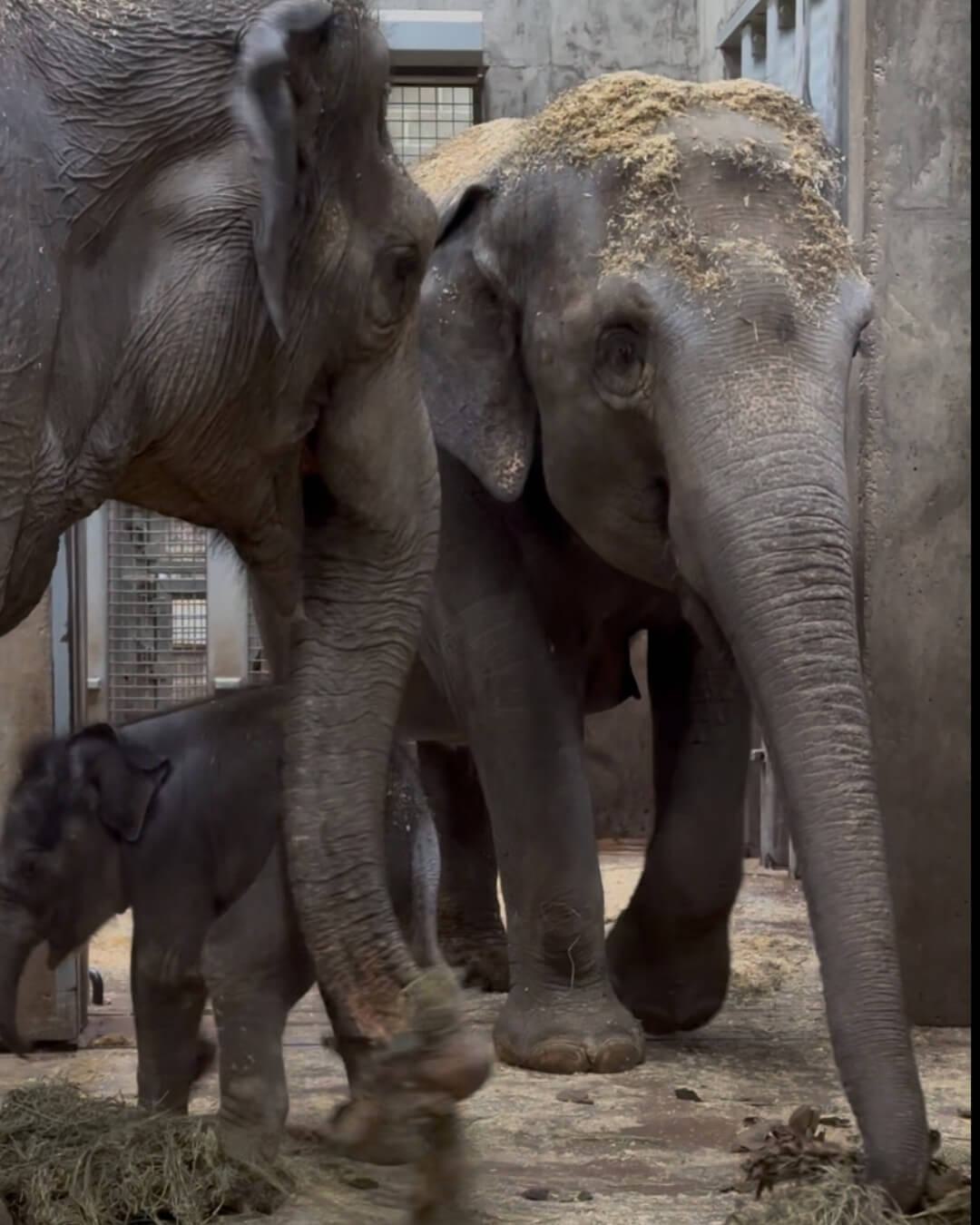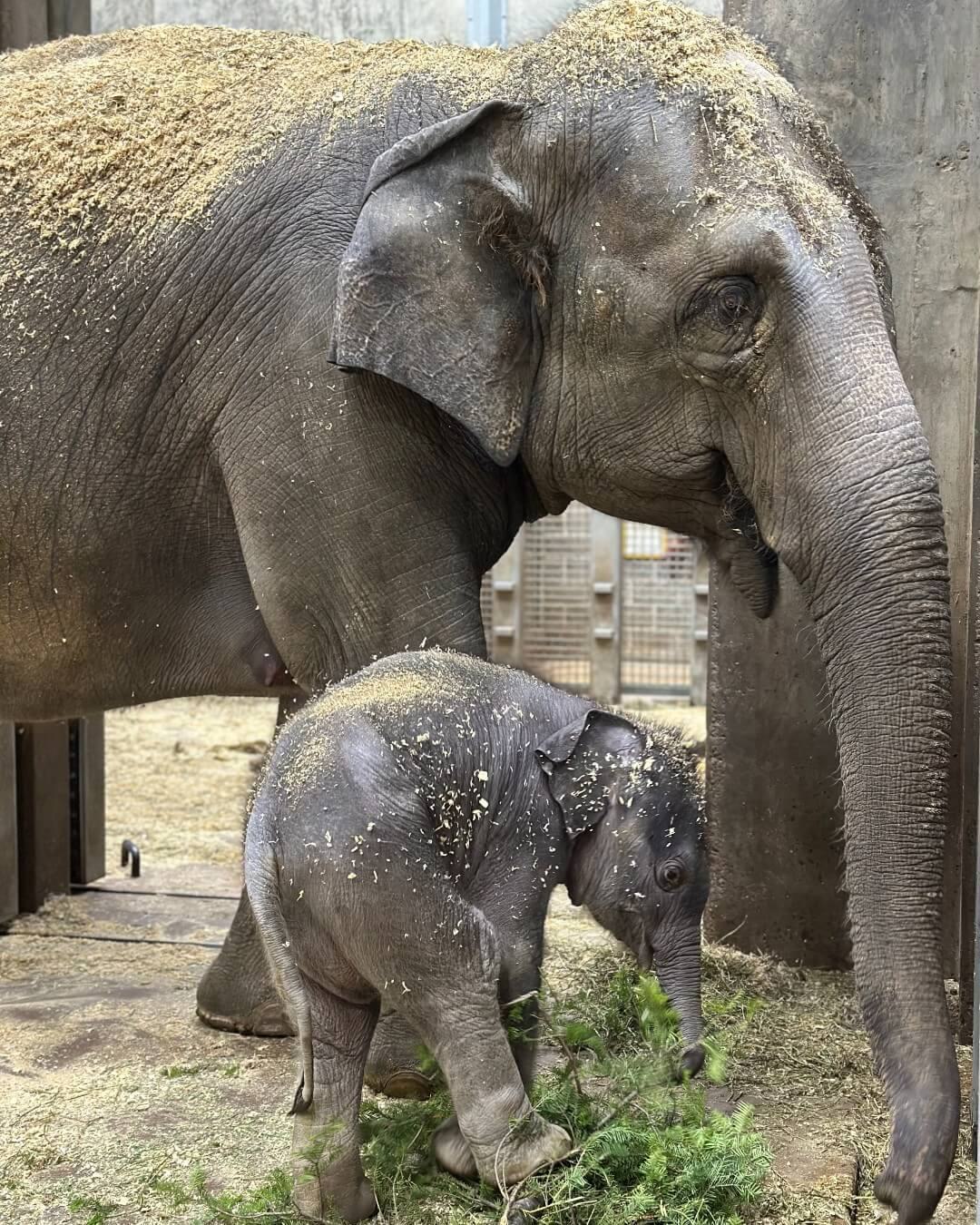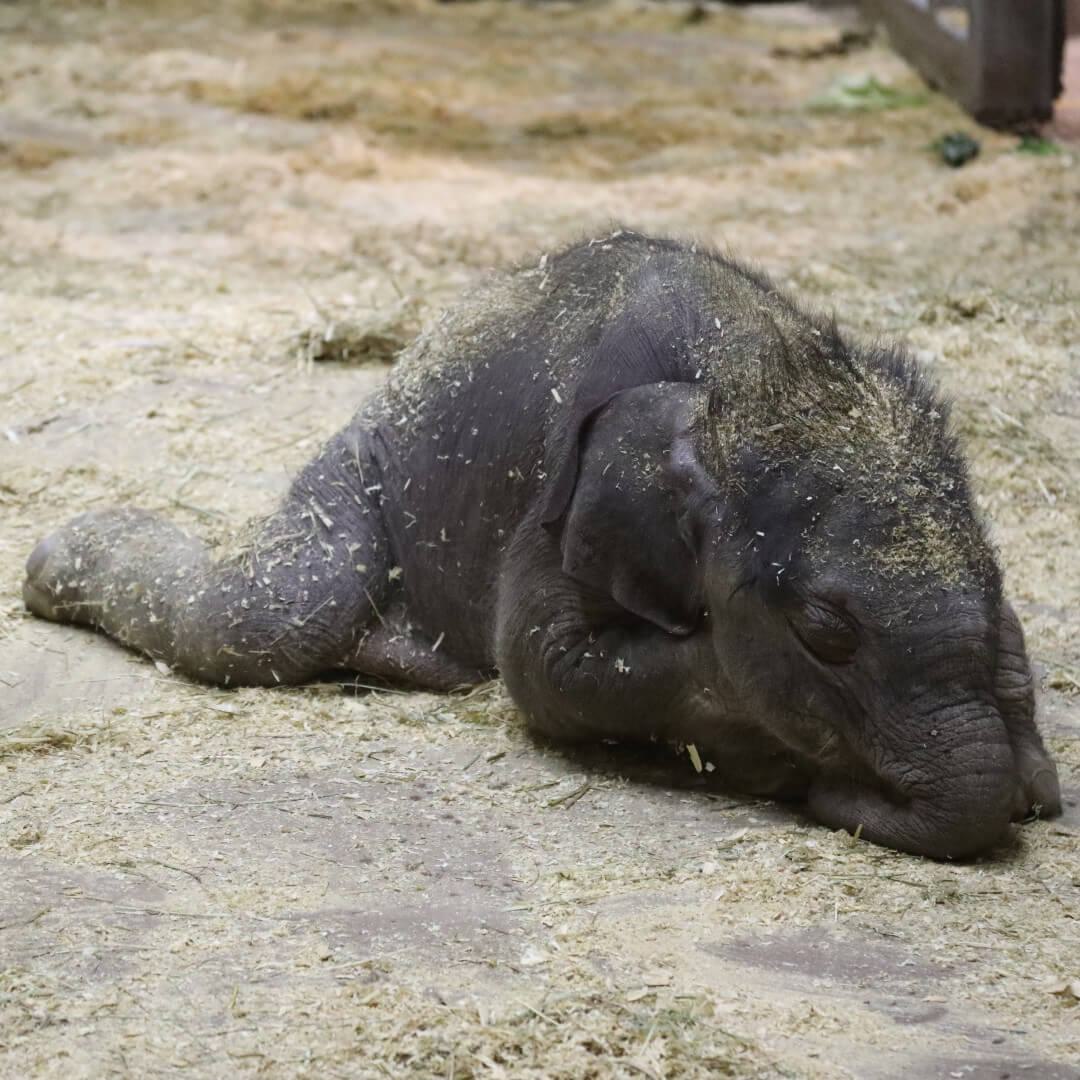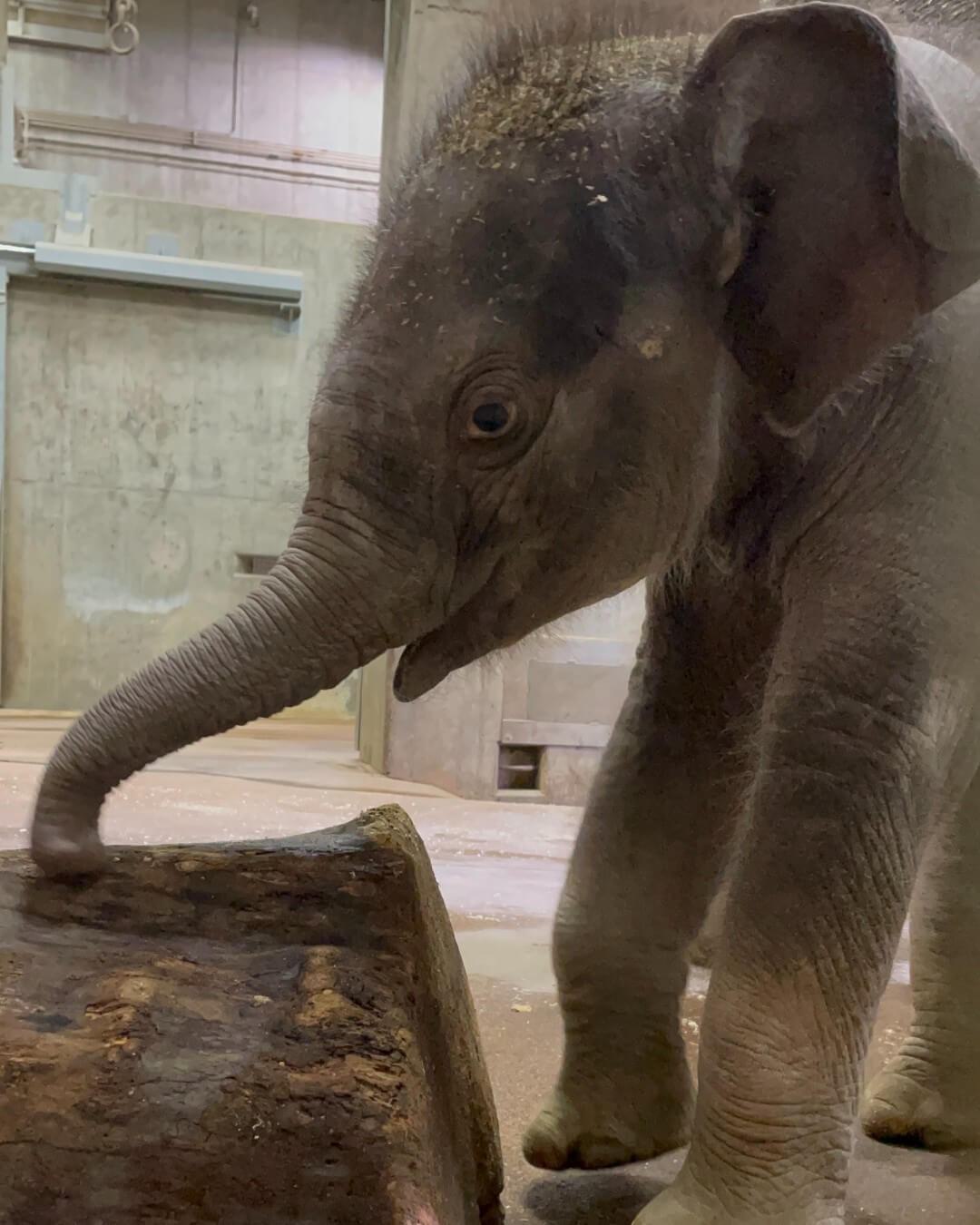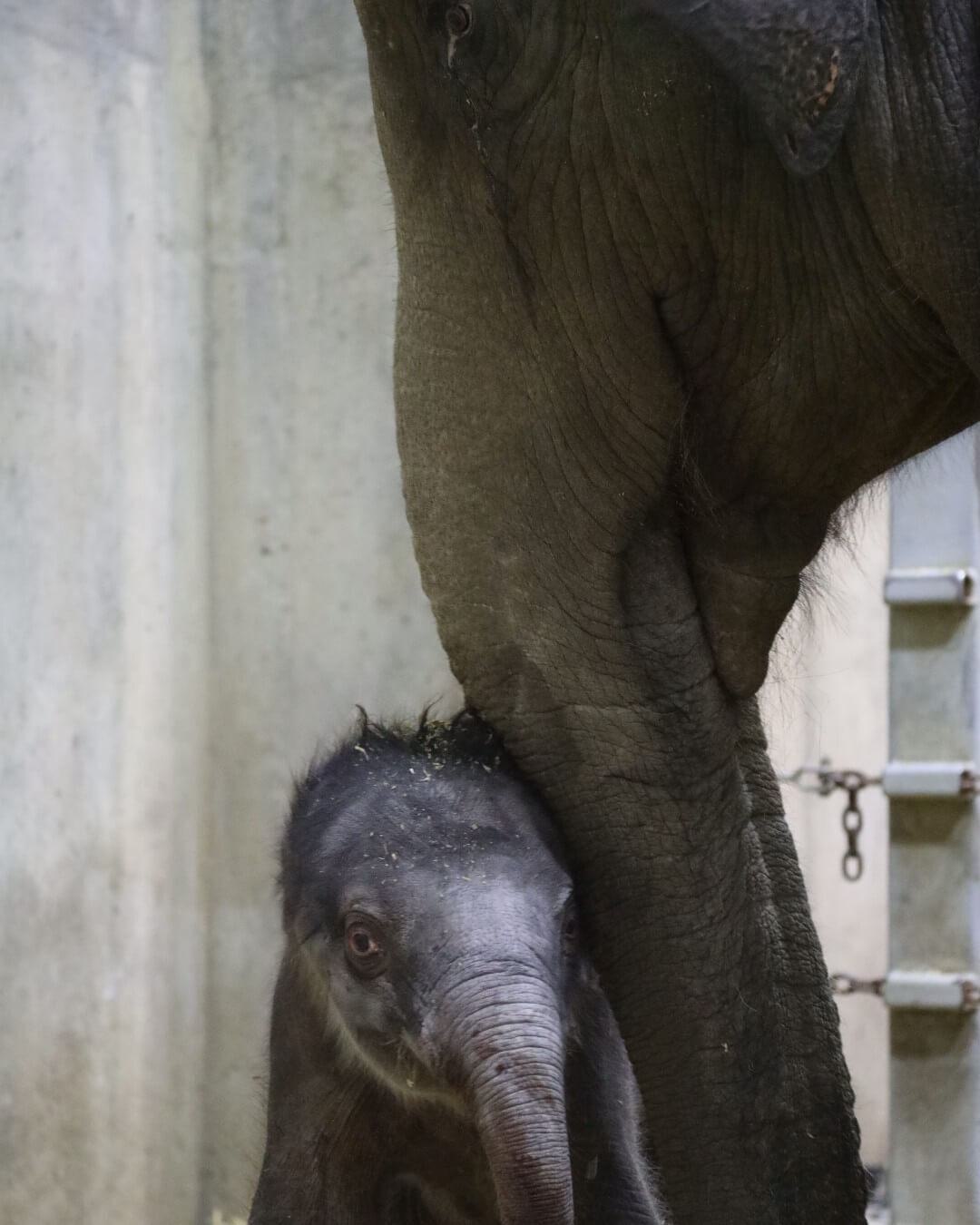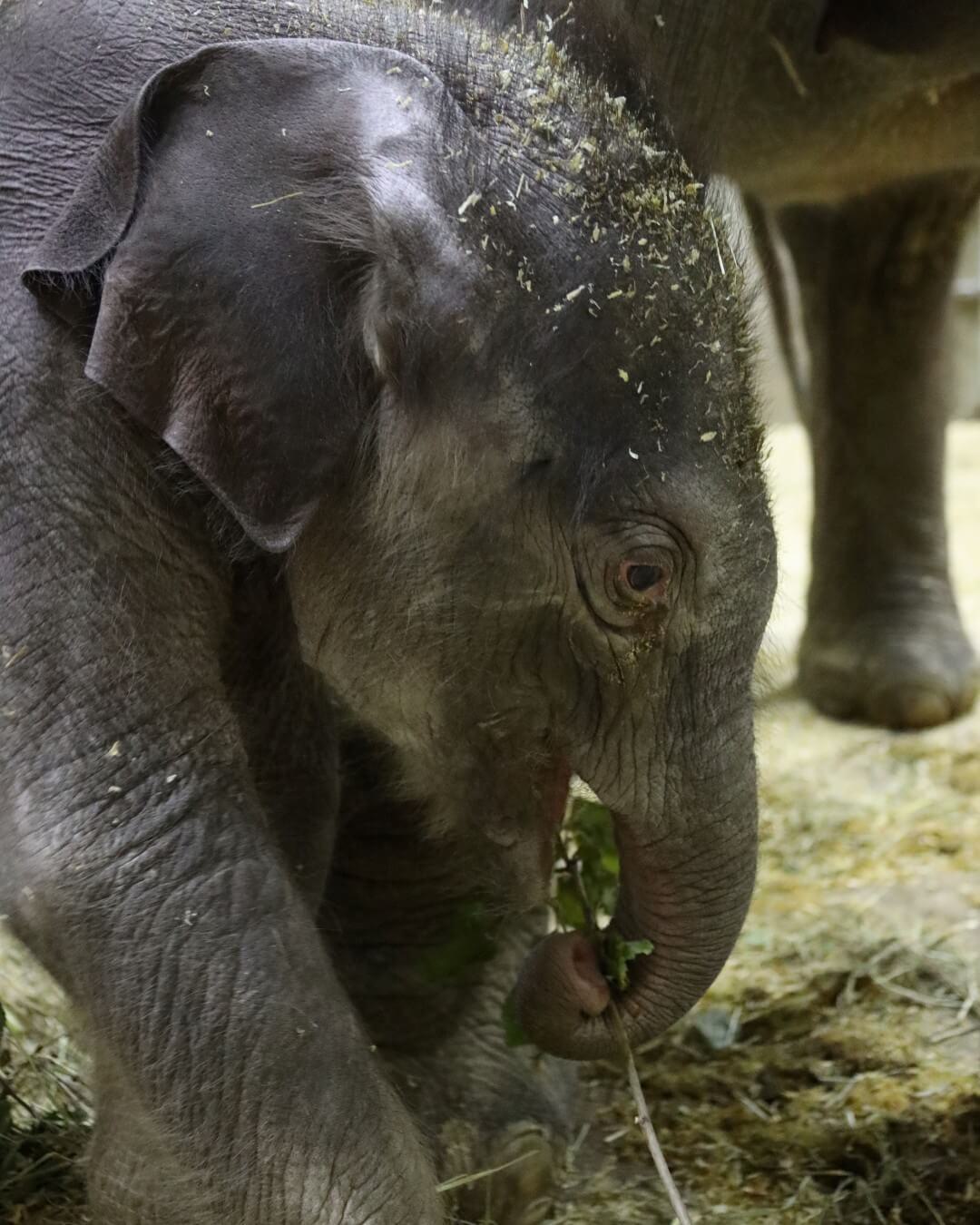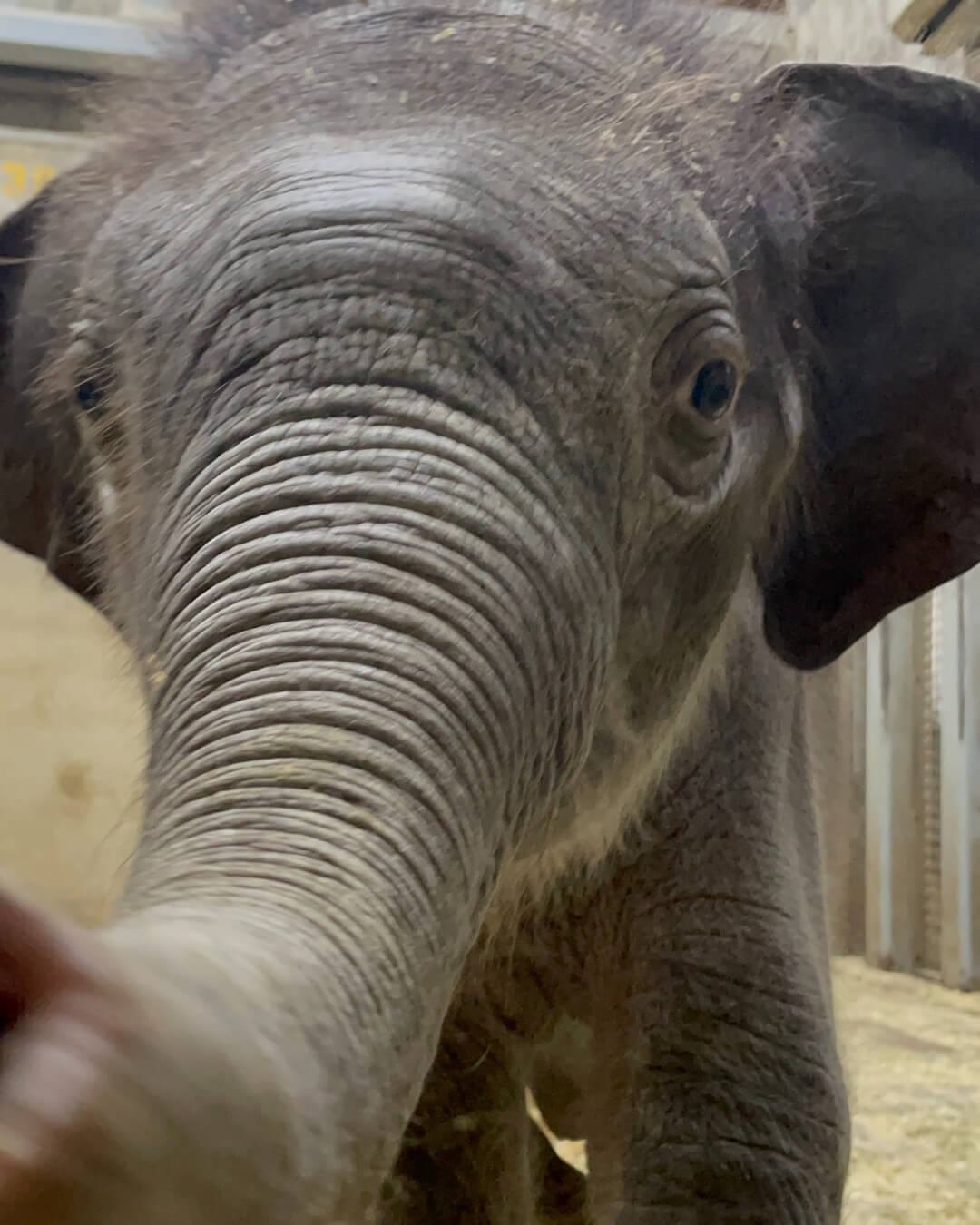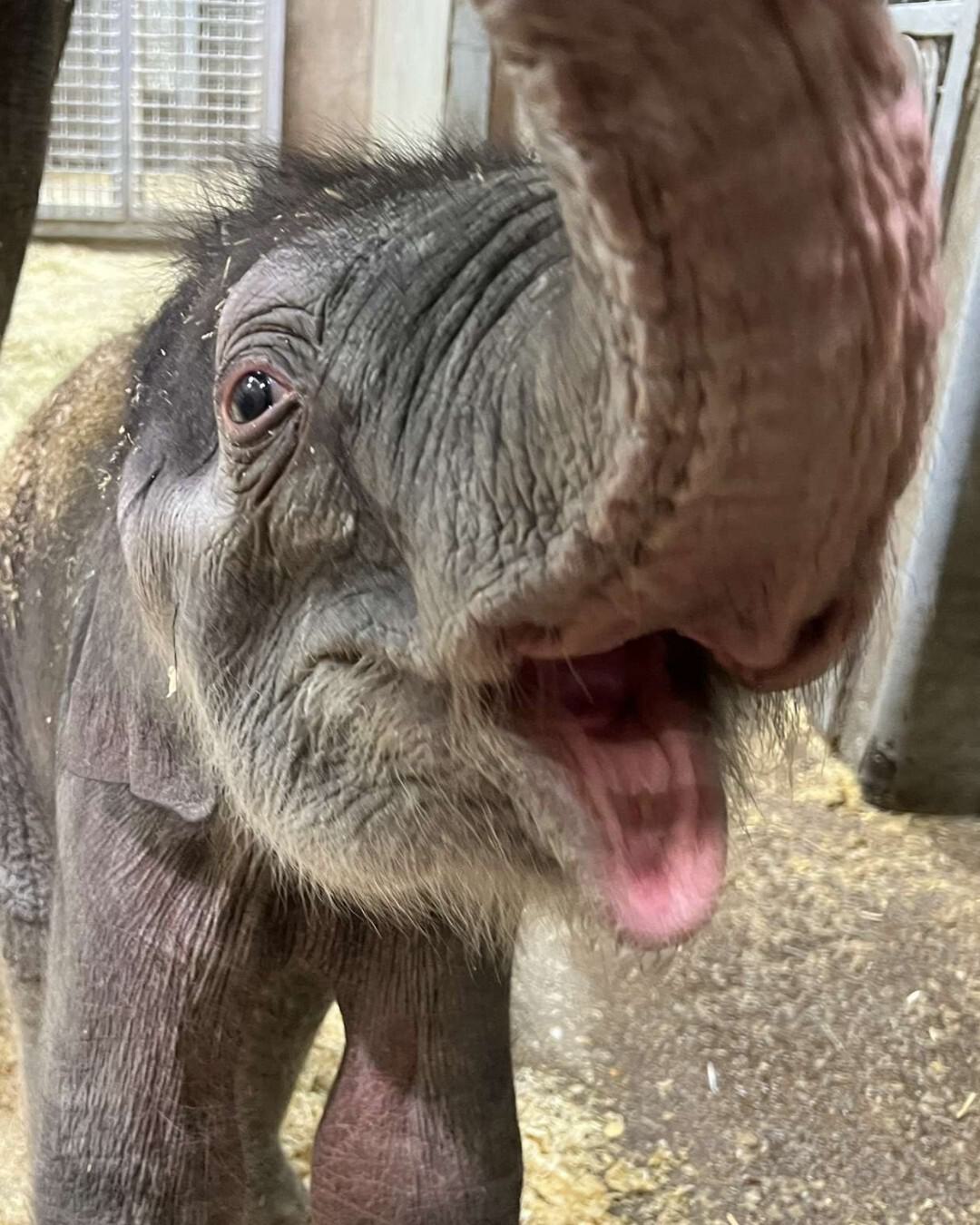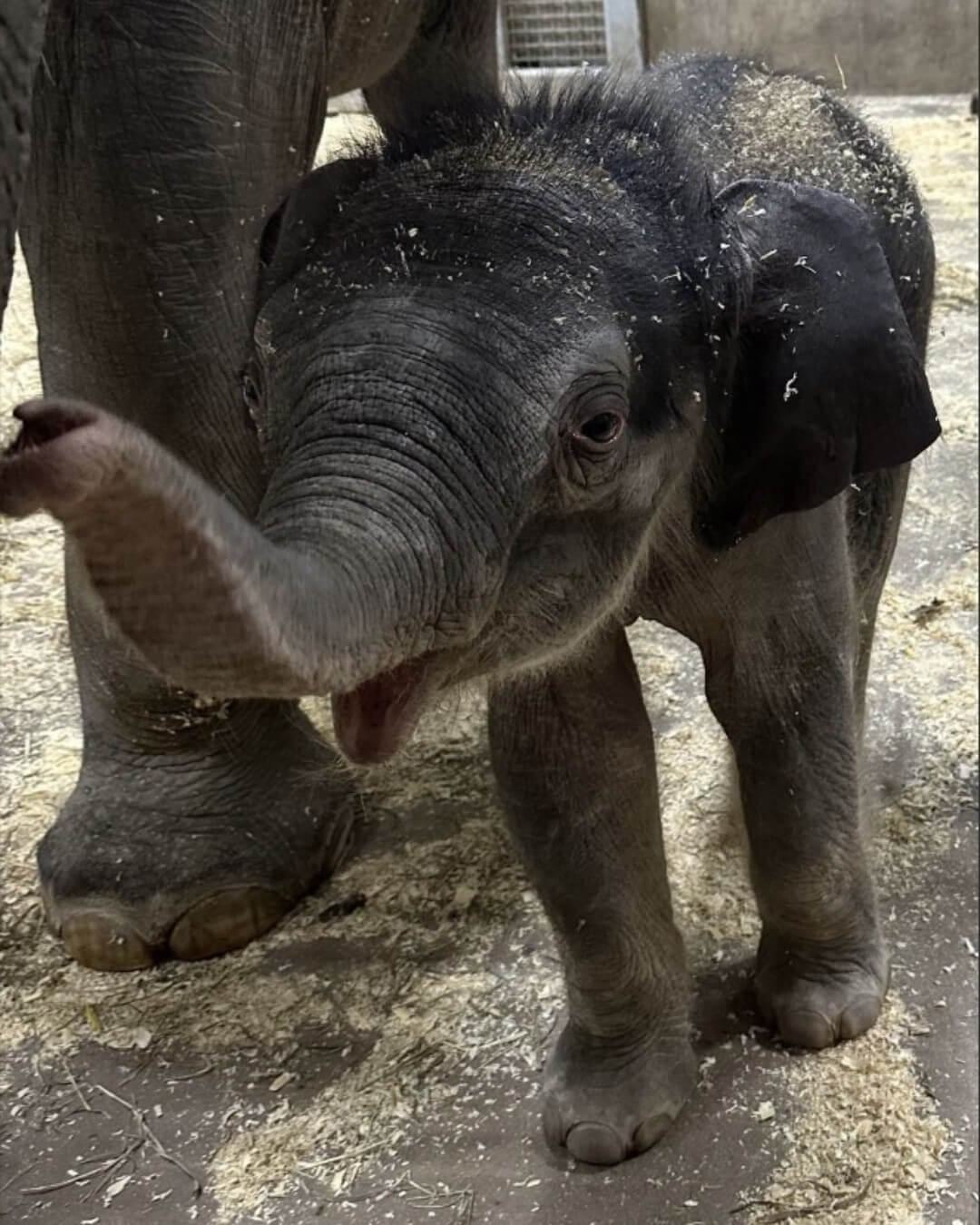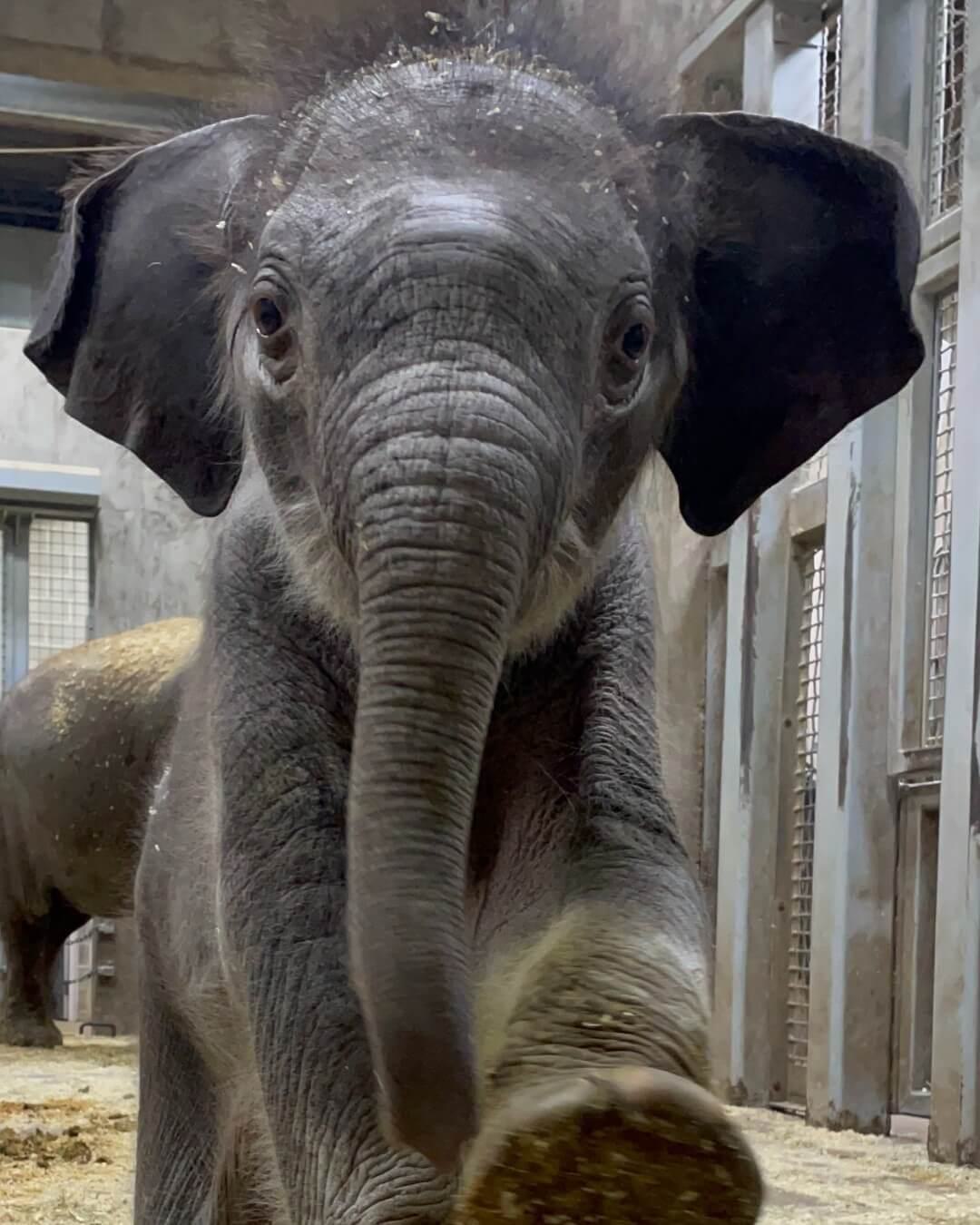
Asian elephant Jet was born Nov. 23, 2024, marking the first Asian elephant calf born through artificial insemination at the Saint Louis Zoo and the beginning of a fourth generation of the Zoo's elephant family.
December 26, 2024

Asian elephant Jet was born Nov. 23, 2024, marking the first Asian elephant calf born through artificial insemination at the Saint Louis Zoo and the beginning of a fourth generation of the Zoo's elephant family.
Jet is one year old! In 2024, Jet became the first Asian elephant born through artificial insemination at the Saint Louis Zoo. Since then, he’s quickly captured the hearts of many Zoo guests and his passionate animal care team.
Jet spent his first year playing, exploring and learning from mom Jade and “Auntie” Sri. Now, at one year old, Jet is a playful, curious and energetic calf, already weighing 985 pounds!
We're celebrating Jet’s big day with a look back on some of his big milestones and cutest moments. Happy birthday, Jet!
Fun in the sun with Jet! 🌞
Playtime for Asian elephant calf Jet means cooling off in his pool, climbing logs and running around his habitat. Exploring and playing is important for a baby elephant’s development, and Jet is now 9 months old!
Asian elephant calf Jet made his public debut at the Saint Louis Zoo on April 22, 2025.
Five-month-old Jet will now be making frequent appearances in the habitats in the River’s Edge area of the Zoo. The Zoo is open from 9 a.m. to 5 p.m. this spring, but there is no set schedule for when Jet will spend time in the public habitat. Riders on the Emerson Zooline Railroad will occasionally still spot Jet in a behind-the-scenes elephant area, The Staenberg Group Elephant Woods.
Jet was born Nov. 23, 2024, becoming the first Asian elephant calf born through artificial insemination at the Saint Louis Zoo. His parents are first-time mom Jade and father Jake, a resident of Denver Zoo Conservation Alliance.
In his first months of life, Jet has bonded with his mother and one of the older female members of the herd Sri. The Animal Care team has gradually introduced him to new areas and experiences to aid his development and prepare him for his public debut.
“Jet is a curious young elephant. He loves to run around, play in the dirt, and climb over logs,” said Katie Pilgram-Kloppe, Zoological Manager of River’s Edge at the Saint Louis Zoo. “He is always eager to work with his training team to learn behaviors that help us to make sure he is staying healthy-- like opening his mouth to allow us to look at his teeth and gums."
Jet is the first member of a fourth generation of the Zoo's elephant family. Keepers chose his name as a nod to the Zoo's elephant family history of gemstone names, including his mother Jade and great grandparents Onyx and Pearl.
Jet has grown more than 300 lbs. since birth, recently tipping the scale at 578 lbs.
The St. Louis region was blanketed with snow on Jan. 5, so keepers brought the snow day inside for Jet by making him a little snowman (or rather a snow elephant) of his own.
One month of Jet means a whole month of cute photos. Jet now weighs 318 pounds and is full of energy. He spends most days with his mom, Jade, but he has also met his auntie Sri. Jet and Jade are bonding in a private area of the Zoo. Baby will make his debut in the outside habitats once his development and the weather allow.
A quick reminder from baby Jet: Time to drink some water! Jet is now three weeks old! Mom Jade is still nursing Jet, but he is learning how to drink water using his trunk. You can even see him (and hear him) blowing bubbles with his trunk. Unlike a straw, elephants will take the water from their trunks and squirt it into their mouths. Jade and Jet are bonding well in a private area of the Zoo. He will make his debut in the outside habitats once he is older, and weather allows.
Newborn Asian elephant Jet's first week of life included a bath with his mom Jade. At first, he was cautious approaching the water spray and stayed tucked underneath mom, but after a few minutes, he began to play and roll around in the water underneath Jade.
Jet and Jade are bonding well in a private area of the Zoo. He will make his debut in the outside habitats once his development and the weather allow.
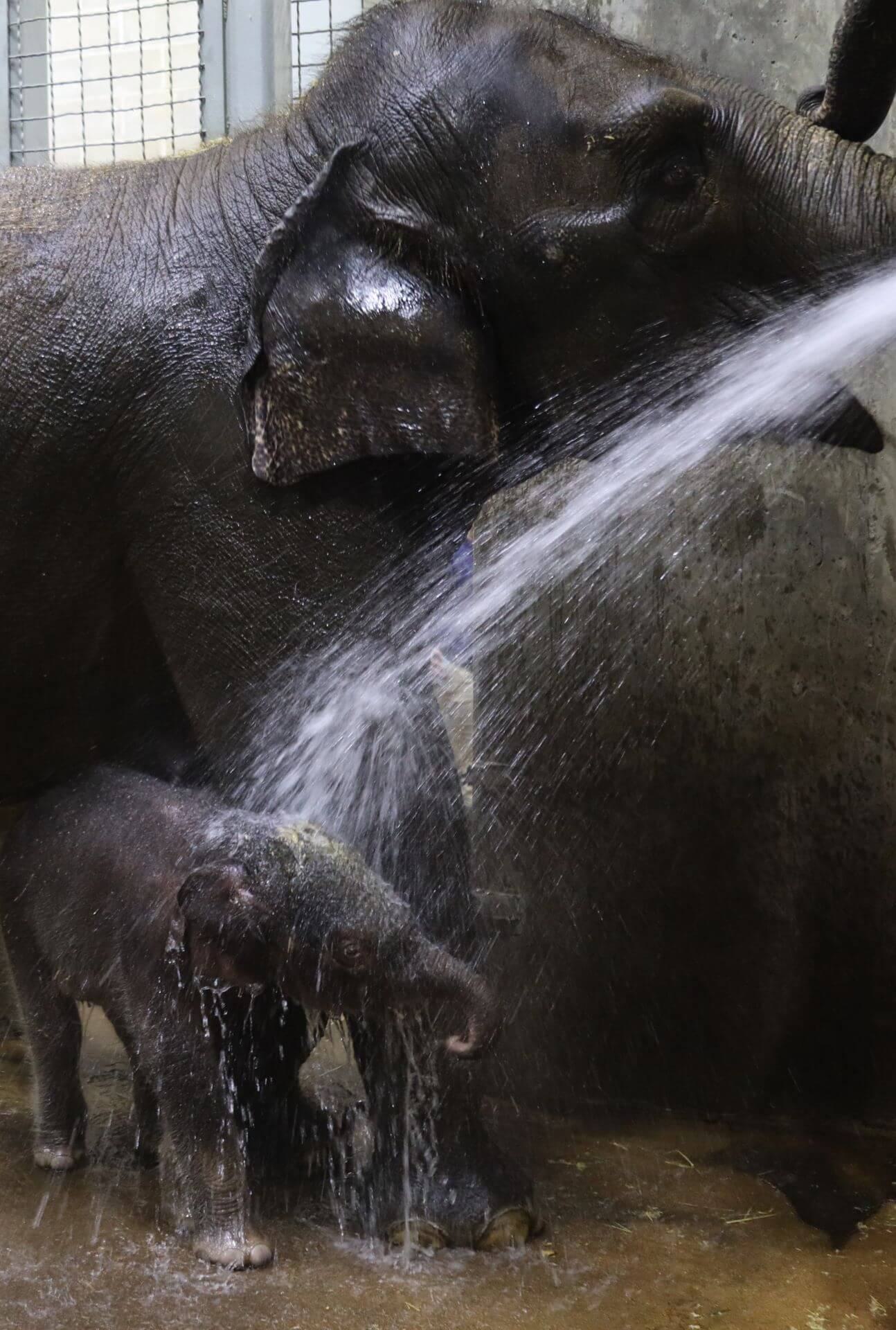
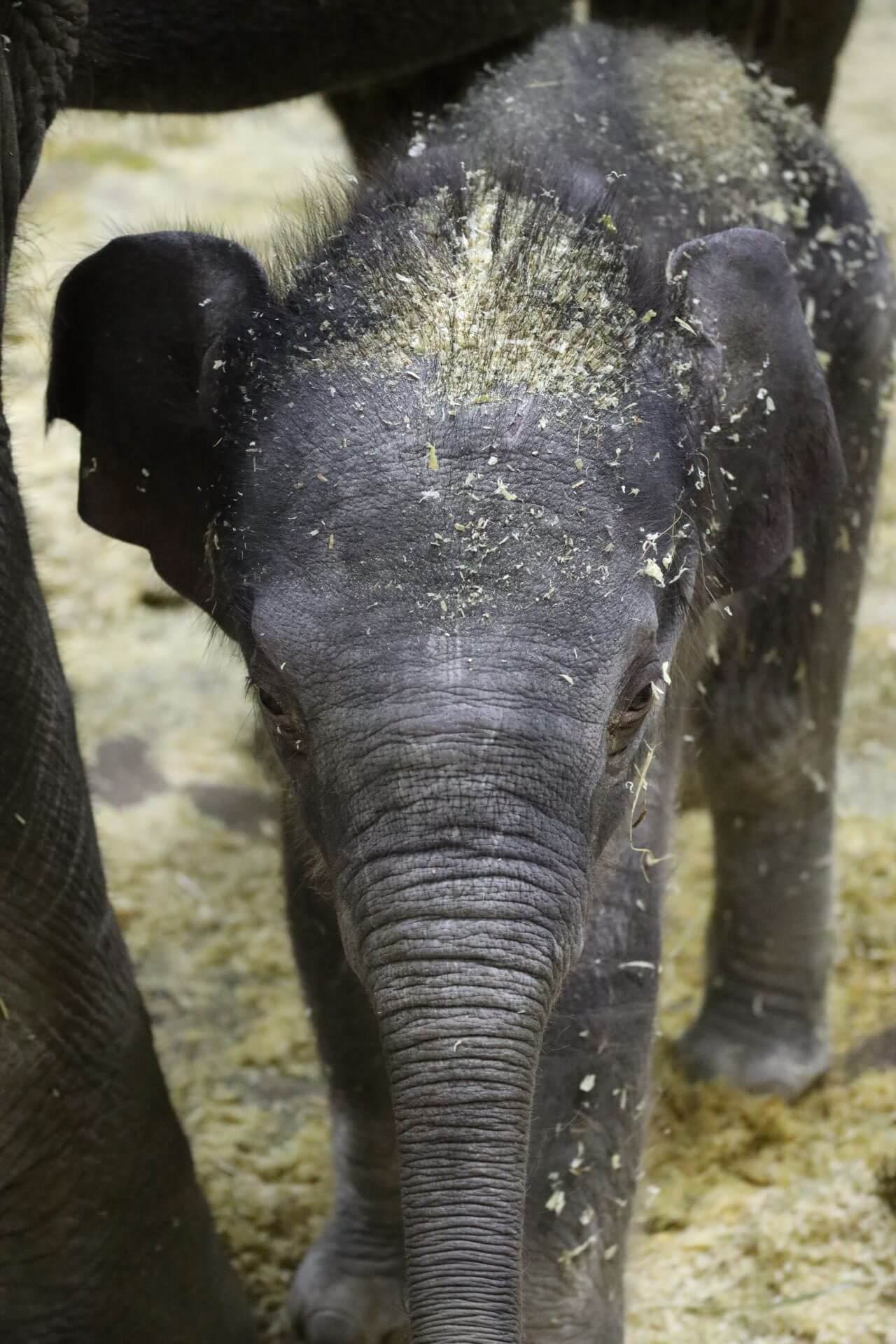
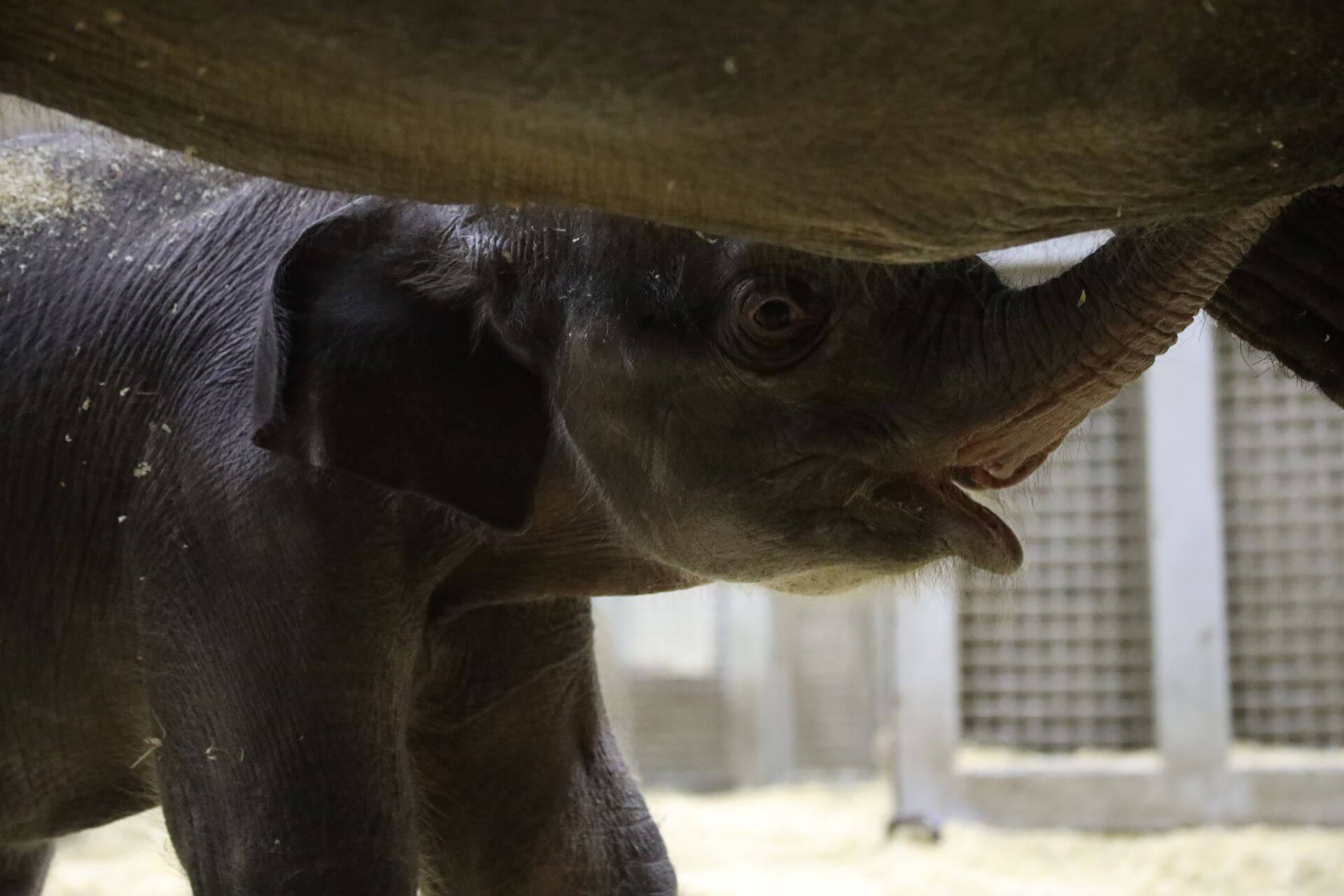
Could baby Jet be any cuter?
Jet, born Nov. 23, is an energetic little Asian elephant who is growing more courageous and coordinated each day under the wonderful care of first-time mom Jade. He has enjoyed exploring, playing with greenery and interacting with keepers. He also learned to approach and stand on the Zoo's large platform scale. His first weight was 262 lbs.!
Jet and Jade are bonding well in a private area of the Zoo. Baby will make his debut in the outside habitats once his development and the weather allows.
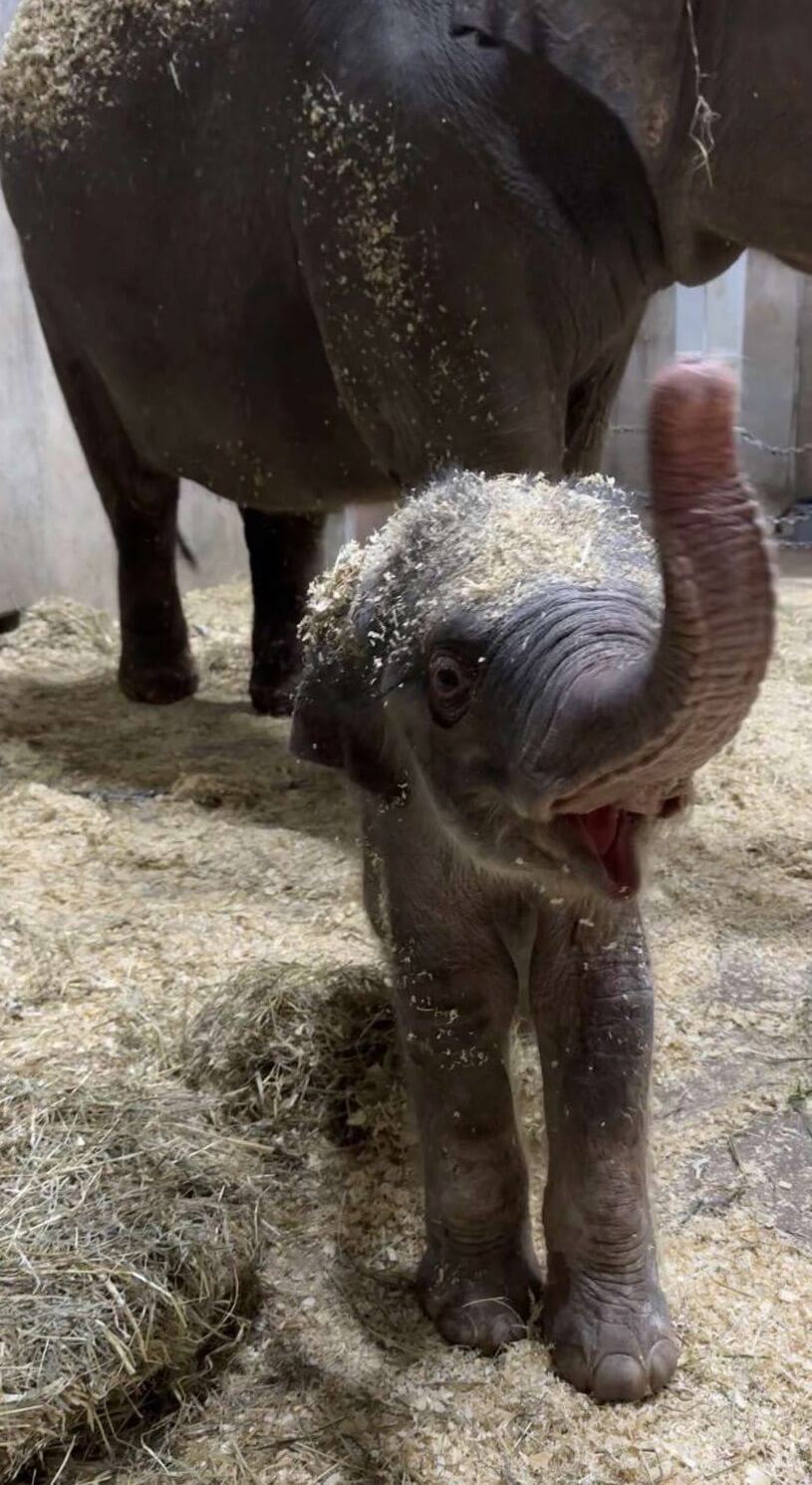
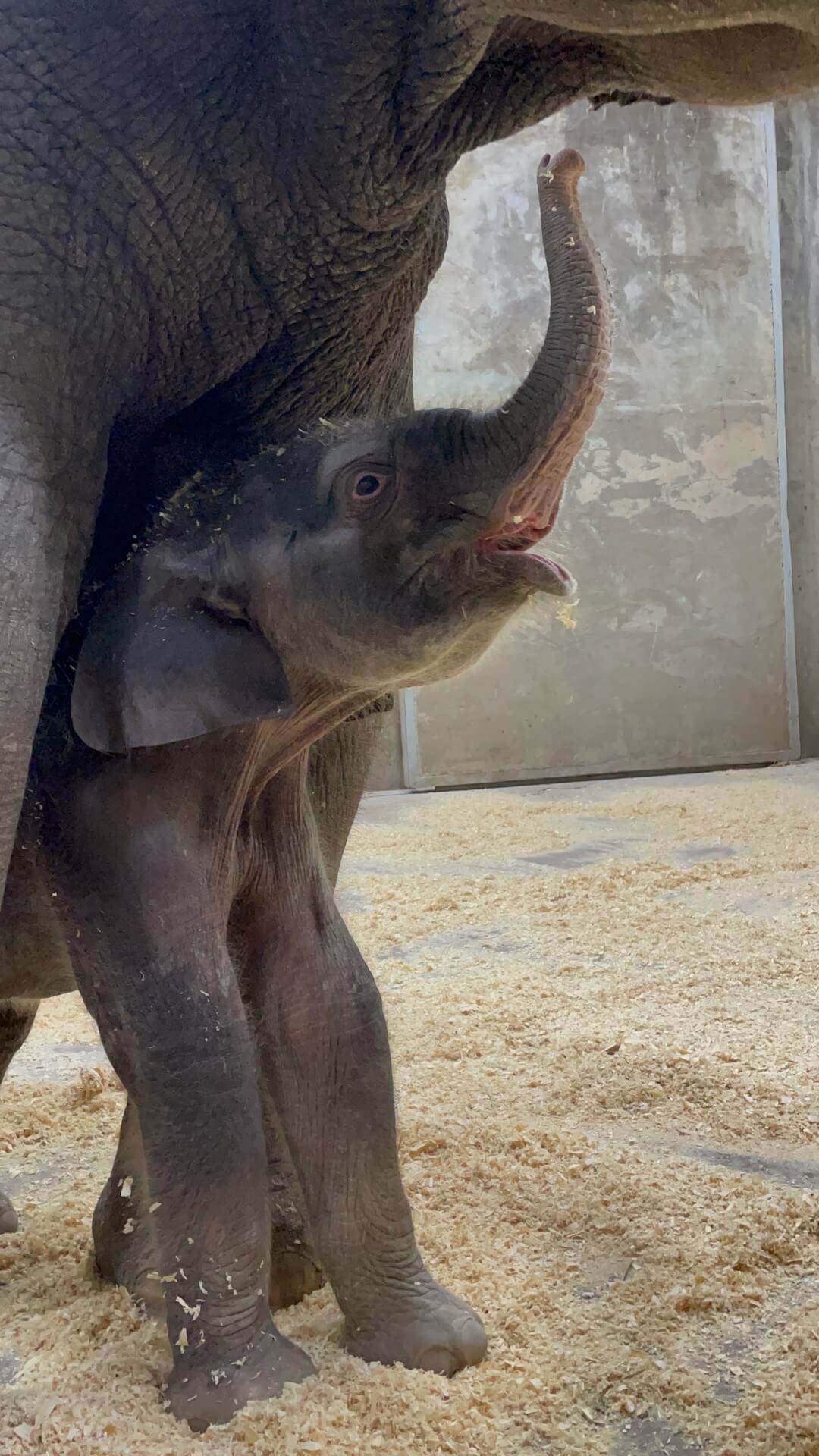
St. Louis, MO (Nov. 24, 2024) The Saint Louis Zoo is proud to announce the birth of a male Asian elephant calf at 4:32 a.m. on Saturday, Nov. 23, 2024. Jade, the Zoo’s 17-year-old Asian elephant, gave birth to a baby boy named Jet by the Elephant Care team.
Jet is a gemstone and in line with the Zoo's elephant family history of gemstone names. The calf’s great grandparents are Onyx and Pearl and his mother is Jade.
“We are thrilled to welcome this calf, which starts the fourth generation of our Asian elephant family at the Zoo,” said Tim Thier, Curator of Mammals/Ungulates and River’s Edge, and Director, Saint Louis Zoo WildCare Institute Center for Asian Elephant Conservation. “Jade and baby are doing well and bonding.”
This is the first Asian elephant birth from artificial insemination at the Saint Louis Zoo. The father is Jake, who was born at African Lion Safari in Ontario, Canada, and currently lives at Denver Zoo Conservation Alliance in Denver, CO. The Saint Louis Zoo is committed to improving the sustainability of the Asian elephant population. Using the science of artificial insemination allowed Jade to contribute to the genetic diversity of the population while remaining with her family group.
“Being able to breed and raise a baby is an important part of animal wellbeing and one of the priorities of our thoughtful and robust Animal Care program,” said Regina Mossotti, Vice President of Animal Care, Saint Louis Zoo. “Our incredible and experienced Animal Care team is providing exceptional around-the-clock care for Jade and her newborn calf.”
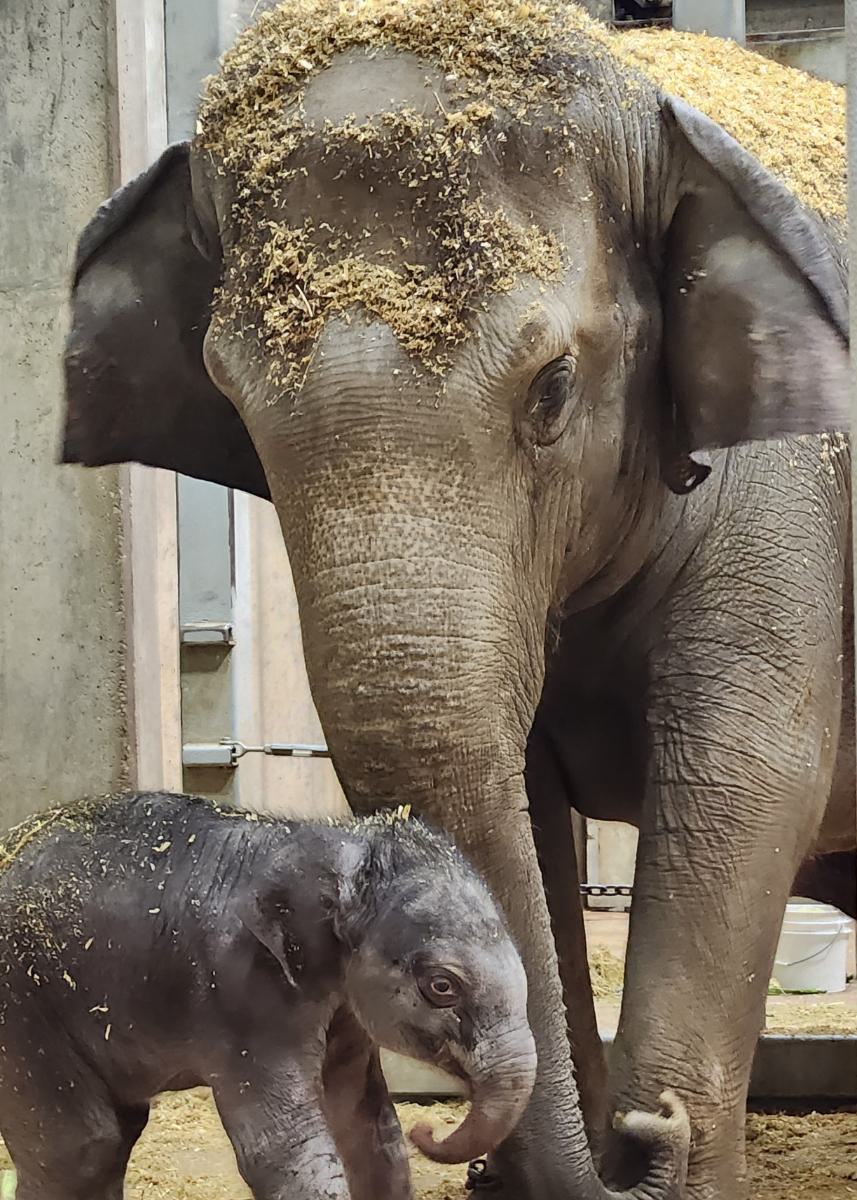
An elephant pregnancy lasts about 22 months, and a newborn typically weighs about 250-350 pounds. Jade received regular prenatal health checkups throughout her pregnancy by the Zoo’s elephant care team.
Jade is part of an eight-member, four-generation elephant family that includes her new calf, Ellie, Maliha, Pearl, Priya, Sri and Raja at the Zoo’s River’s Edge and Staenberg Group Elephant Woods habitats. Jade was born at the Saint Louis Zoo in 2007 to parents Rani and Raja.
Mother and baby are bonding off public view. When the calf is older and temperatures are warm enough, baby will be able to explore his outdoor habitat. This date has not been set.
Species Survival Plan
This elephant breeding was recommended by the Association of Zoos and Aquariums Asian Elephant Species Survival Plan (SSP), a national cooperative breeding and management program responsible for maintaining a genetically healthy and sustainable population of Asian elephants in North American zoos. The SSP includes recommendations for assisted reproduction techniques like artificial insemination that can benefit the population, even while animals do not reside together. The Denver Zoo Conservation Alliance is a leader in male elephant research that has contributed to advancements in assisted reproductive technologies. This birth is the second successful birth from the institution’s semen collection program.
Asian Elephant Conservation
There are less than 50,000 Asian elephants left in the wild, and they are facing extinction due to habitat loss and poaching. Given the shrinking population of Asian elephants, the Saint Louis Zoo is committed to conserving this endangered species. The Saint Louis Zoo WildCare Institute Center for Asian Elephant Conservation supports the welfare and conservation of Asian elephants in Sumatra and other Asian countries. The Saint Louis Zoo WildCare Institute Center for Conservation in the Horn of Africa also supports the conservation of African elephants in Kenya through the Northern Rangelands Trust. North American population of Asian elephants acts as an assurance population for their wild counterparts, to help ensure the future of this important species.
Leaders in EEHV Detection and Testing
The Saint Louis Zoo has been a leader in pursuing the latest elephant endotheliotropic herpesvirus (EEHV) detection and testing protocols. EEHV is a recent discovery, identified in 1995 by researchers at Smithsonian National Zoo. Since its discovery, the virus has been identified in the wild in both African and Asian elephants. Elephant calves are highly susceptible to EEHV, a viral infection shown to be fatal to wild elephants and elephants in human care. In 2021, the Zoo joined together with other North American elephant facilities in actively supporting EEHV research efforts with its own Polymerase Chain Reaction Laboratory. This allows expert Zoo team members to test samples within a few hours of collection. Early detection and recommended treatments have been made possible because of ongoing research at accredited zoos and reputable elephant care facilities. Recently, a groundbreaking new vaccine for EEHV was released for Asian elephants.
About Saint Louis Zoo
Home to over 16,000 animals, representing nearly 500 species, the Saint Louis Zoo is recognized worldwide for its innovative approaches to animal care and management, wildlife conservation, research, and education. One of the few free zoos in the nation, the Saint Louis Zoo is the most-visited attraction in the region. Accredited by the Association of Zoos and Aquariums (AZA), the Saint Louis Zoo is part of an elite group of institutions that meet the highest standards in animal care as well as provide fun, safe and educational family experiences. The Saint Louis Zoo and the other AZA-accredited institutions collectively dedicate millions of dollars annually to support scientific research, conservation and education programs. For more information, visit stlzoo.org.

